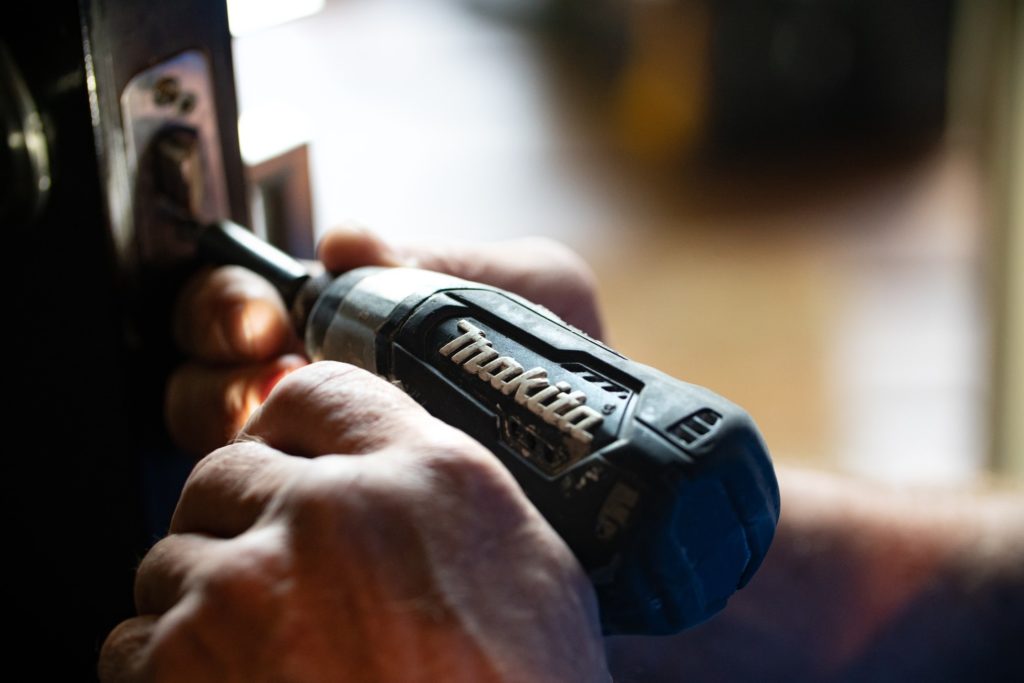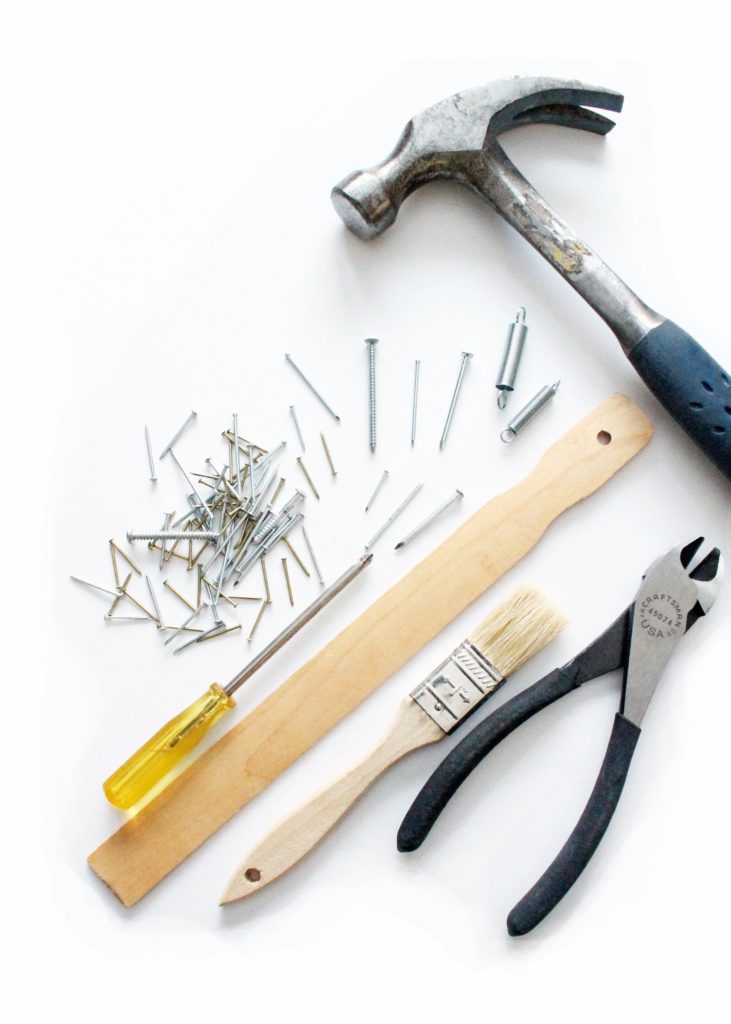If friends and family count on you to make minor repairs on the house, do driveway resealing and other property maintenance, and complete small construction projects, chances are you’ve got the skills to make a good living as a handyman.
The work is steady if you market your business well. Surveys repeatedly show more than half of U.S. homeowners will call a handyman before attempting a repair themselves. As for the other half, it is uncertain how many of them will also eventually call a handyman. You may be able to charge them more if they’ve made the problem worse by trying to fix it themselves.

As a self-employed professional, you can set your own schedule and prices, as well as choose what types of work to do. A motivated handyman can make six figures a year without too much trouble.
Beyond training in skills you don’t already possess, the main expense in starting a handyman business is equipping yourself with the tools needed to complete a wide range of jobs. More expensive gear, such as a power washer for cleaning the siding on a house, can usually be rented locally and you can build the cost of the rental into your price for the job. In addition, you’ll want to show customers that you are bonded and insured, so they can hire you in confidence, knowing that if there is an accident they won’t be held liable for something that happens on their property.
At the end of the day, you’ll rest easy knowing you’ve helped people protect the investment in their homes by depending on you.
Read on to learn what’s involved in becoming a handyman.
In this article you’ll learn:
- How much money you can make as a handyman
- The required training and certifications
- Professional groups to join
- Employment opportunities for handymen
- Finding clients
- Plus helpful tips
How much money can you make?
The average handyman rate is about $60 an hour, with some services, such as roofing repairs, costing much more on an hourly basis. You may want to charge a flat fee for certain types of work. This can give you a competitive advantage since your customers know the cost up front and may be more inclined to work with you than hire someone who might take an unknown number of hours to complete a job.
Training and Certification
When starting your career as a handyman, a license may not be required to perform work. In some states, you will need a license if the job is valued over a certain amount, say, $1,000. To be certain, check with your local government and state licensing board to verify what rules apply to you.

Most localities will require you to have a business license to operate. That usually involves nothing more than filling out a form and paying a fee.
As for training, it’s a good idea to decide what services you want to offer as a handyman, based on skills you already possess. Services involving plumbing and electrical work will be off-limits unless you have the necessary certifications and licensing for those trades.
You can learn or brush up on additional skills by taking courses at the local community college or search the Internet for a suitable online course.
Here’s an extensive directory of handyman schools and training programs you can review. Find a program nearby for in-person training or choose online learning. Online courses are generally less expensive, but you won’t get as much instructor feedback as you would in a classroom/workshop setting. Before signing up for courses covering a specialized topic, do a little research on your market. What services are in demand? Where is competition the lowest? Then consider concentrating on training courses covering those areas.

The list below covers basic handyman services that don’t require formal certification:
- Minor interior and exterior cosmetic repairs, such as patching a hole in drywall
- Interior and exterior painting
- Moving heavy items (sofas, china cabinets, large furniture and appliances)
- Installing light fixtures
- Clearing and maintenance, including lawn care
- Installing windows and doors; replacing broken window panes
- Fixing faucets and unclogging sink drains
- Minor carpentry repairs and construction
- Assistance with product assembly (bookcases, desks, tables and other furniture)
Professional Groups to Join
Association of Certified Professional Handymen offers annual ($99.99) and lifetime ($245.99) memberships. While not a licensing organization, the association does offer certification to members.
Benefits include networking with other members, a business listing in the association’s directory and the distinction of being a certified handyman, which you can use on your marketing materials to promote your business. The association also offers access to insurance for handymen.
Employment
If you’re not ready to start your own business, print out your resume and take it to area companies that offer handyman services. Think of it as on-the-job training for your own business while you’re getting paid. Be sure to include references and their contact information. If you can show an established track record of customer satisfaction combined with decent experience, you’re in.
You may also find work as an apprentice or assistant to an independent handyman. There are many jobs where two people will be needed, like moving a piano or hauling away an old refrigerator. Also, sometimes, there’s just more work than one person can comfortably handle.

Finding Clients
When you’re self-employed as a handyman, it’s up to you to find steady work. This means marketing your business. You’ve got to get your name out there.
You’ll need a website. Something basic will do fine, just a page outlining your services and contact information, and a few pages of photos showing off your work. Some “before” and “after” photos make a nice contrast to illustrate the benefits customers enjoy when hiring you for the job.

Work with a printing company to produce a large magnet sign you can attach to the side of your vehicle. The sign should include your business name, the fact that you offer handyman services, and a phone number to call. You can include your website address at the bottom. As your business grows and you become wildly successful, you can eventually have your business information professionally painted on the side of your work van – or the entire fleet. But in the beginning, a magnetized sign will be fine.
While you’re at the printing company, order some business cards: company name, phone number and website address. If there’s room for a slogan or catchy motto, add that, too.
Customer retention is also important. Keep your customers happy and you’ll enjoy repeat business for years to come. People almost always stick with companies they trust, but a reliable handyman is gold.
As an incentive, offer regular customers a discount for referring new customers, then give new customers a discount for trying out your service.
Good to know:
Getting set up for work
As a self-employed professional, you’ll need to buy your own tools and equipment to do your work. Because this can represent a substantial investment, consider a tool insurance policy to protect yourself. Here is a list of the basic tools and equipment you’ll likely need on a consistent basis (often enough to justify owning these tools):
- Toolbox
- Hammer, set of screwdrivers, pliers, wire strippers, a multi-tool and/or pocketknife
- Basic hardware kit (nails, screws, eye-screws, fasteners, other hardware in different sizes)
- Painting supplies, including brushes, buckets, rollers and extension handles, drop cloths
- Step ladder
- Stud finder
- Circular saw
- Jig saw
- Electric drill
- Spirit level
- Tape measure
- A dependable vehicle to transport yourself and your equipment
Specialty items like power washers, mulchers, lawn seeders and such can probably be rented from your local farm-supply or hardware store. Unless you decide to specialize in a service such as exterior house cleaning, it may not make good business sense to buy a power washer.

Get business and liability insurance
Just do it.
You’ve got tool insurance, so if someone breaks into your van and steals your power tools, you’re covered. Business insurance protects you if something goes wrong. Liability insurance offers protection if someone gets injured as a result of your work. The question should never be whether a new business can afford insurance. The question is, can you afford not to have insurance? In almost all cases, the answer to the second question is “no.”
If you enjoyed this article, check out some more great PocketSuite.io content that can help you grow your career as a handyman. Here’s a great place to start.PocketSuite has thousands of business owners who all started where you are right now. Our community is always happy to help you ramp up, grow your client base, and achieve your income goals, both within the PocketSuite app and as part of our exclusive Facebook Community Group. PocketSuite’s vision is for any professional to be able to work for themselves and make a great living. It starts here. It starts with you. It starts today. Let’s get started, download PocketSuite now! Feel free to reach out with any questions (we’d love to hear from you)! Text us @ (415) 841-2300.



